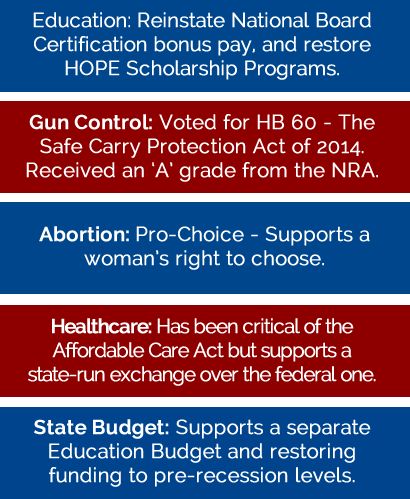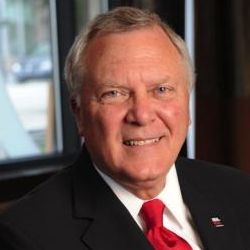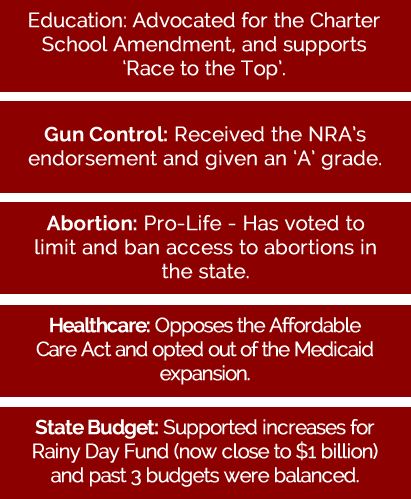Independents to Decide Carter vs. Deal Ga. Gubernatorial Race

Republican Governor Nathan Deal and Democratic State Senator Jason Carter are in a dead heat to become the Peach State's next governor.
Real Clear Politics' poll analyzer shows Deal with a slight edge, 45 percent to Carter's 43 percent -- within the margin of error. The state-wide race is poised to be decided by Georgia's independent voters. According to GeorgiaIndependentVoters.org, nearly 30 percent of Georgians self-identify as independent.
Here's how the two front-runners stack up:
Partisan Profile
Jason Carter

State Senator

Nathan Deal

Governor of Georgia

Another wrinkle to the race is Libertarian Andrew Hunt. He will also appear on the November ballot and has earned the support of Deal's primary challenger, the former mayor of Dalton, David Pennington. Technically, Georgia holds an open partisan primary, meaning any voter can participate in any party's primary, but under state law, voters must declare an "oath of intent to affiliate" with the party of whom they are voting.
Hunt's impact on the race has been noticeable for both Carter and Deal. The Libertarian has averaged about six percent in polls after he advanced as the only candidate on the Libertarian Party's primary ticket for governor. Similarly, Carter advanced past the primary as the only candidate on the Democratic ticket.
Deal, however, faced two challengers in the primary and received over 70 percent of the vote.
Under a nonpartisan primary, like that used in Washington and California, Carter likely would have faced off against Deal one-on-one. Carter received nearly 300,000 votes and Deal would have taken the top spot with just over 430,000 votes in the primary.
Image: Jason Carter (left), Nathan Deal (right)



